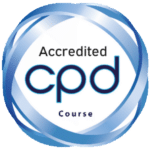Incident Investigation with Tripod Beta Training Course
Consultant/Trainer: Jan Pranger
This course provides the skills needed to investigate and analyse incidents in a structured manner,
with the aim to prevent recurrence and allow organisational learning. You will learn how to collect
evidence and analyse that in order to identify barriers that should have prevented the incident, but
which failed or were missing. This happens in most cases due to human activity – and we must
understand that to identify the preconditions and underlying causes at the organisational level that
explain why that activity – in hindsight an error – did occur. This systematic approach efficiently
discriminates between relevant and irrelevant factors.
This Tripod Beta training is accredited by the Stichting Tripod Foundation, which maintains and develops the knowledge of Tripod Beta. Course participants who pass the knowledge assessment on the last day acquire Bronze Practitioner Accreditation. All course participants receive a certificate of attendance.
This Tripod Beta training is accredited by the Stichting Tripod Foundation, which maintains and develops the knowledge of Tripod Beta. Course participants who pass the knowledge assessment on the last day acquire Bronze Practitioner Accreditation. All course participants receive a certificate of attendance.

Participants
All Petrogenium courses can be tailored for awareness/inexperienced staff, for intermediate and for
experienced personnel. Furthermore, the course can be customized for a specific refinery, plant or
unit. The option for post-course consultancy/help-desk support is also available.


Learning Objectives
- Understanding accident causation and human factors
- Obtain investigation and analysis skills
- Enable sustainable learning in your organization
Day 1: Accident Theory
Day 2: Fact Finding and Timeline
Day 3: Day-to-day operational aspects
Day 4: Recommendations and Report; Case Work
- Why investigate accidents?
- Investigation as part of a Safety Management System
- Accident Causation
- “The Impossible Accident”
- Human Behaviour Model
- Error types: Slips, Lapses, Mistakes and Violations
- When to use Tripod Beta?
- Investigation Management: Process, Terms or Reference, Team
- (Exercises throughout)
Day 2: Fact Finding and Timeline
- Investigation Plan
- Fact Finding: Persons, Positions, Parts and Papers
- Interview: theory, practice and exercises
- Establishing the Timeline/Sequence Time Events Plot (STEP)
- Introduction to BowTieXP/IncidentXP
- Tripod Trios, Controls and Barriers
- (Exercises throughout)
Day 3: Day-to-day operational aspects
- Tripod Beta Core Diagram: Event-Object-Agent
- Causation Path: Immediate Cause, Precondition, Underlying Cause
- Basic Risk Factors
- Case Work
Day 4: Recommendations and Report; Case Work
- Case Work
- Recommendations and Remedial Actions
- The Investigation Report
- Bronze, Silver and Gold accreditation
- Knowledge assessment
Programme
Day 1: Accident Theory
Day 2: Fact Finding and Timeline
Day 3: Day-to-day operational aspects
Day 4: Recommendations and Report; Case Work
- Why investigate accidents?
- Investigation as part of a Safety Management System
- Accident Causation
- “The Impossible Accident”
- Human Behaviour Model
- Error types: Slips, Lapses, Mistakes and Violations
- When to use Tripod Beta?
- Investigation Management: Process, Terms or Reference, Team
- (Exercises throughout)
Day 2: Fact Finding and Timeline
- Investigation Plan
- Fact Finding: Persons, Positions, Parts and Papers
- Interview: theory, practice and exercises
- Establishing the Timeline/Sequence Time Events Plot (STEP)
- Introduction to BowTieXP/IncidentXP
- Tripod Trios, Controls and Barriers
- (Exercises throughout)
Day 3: Day-to-day operational aspects
- Tripod Beta Core Diagram: Event-Object-Agent
- Causation Path: Immediate Cause, Precondition, Underlying Cause
- Basic Risk Factors
- Case Work
Day 4: Recommendations and Report; Case Work
- Case Work
- Recommendations and Remedial Actions
- The Investigation Report
- Bronze, Silver and Gold accreditation
- Knowledge assessment